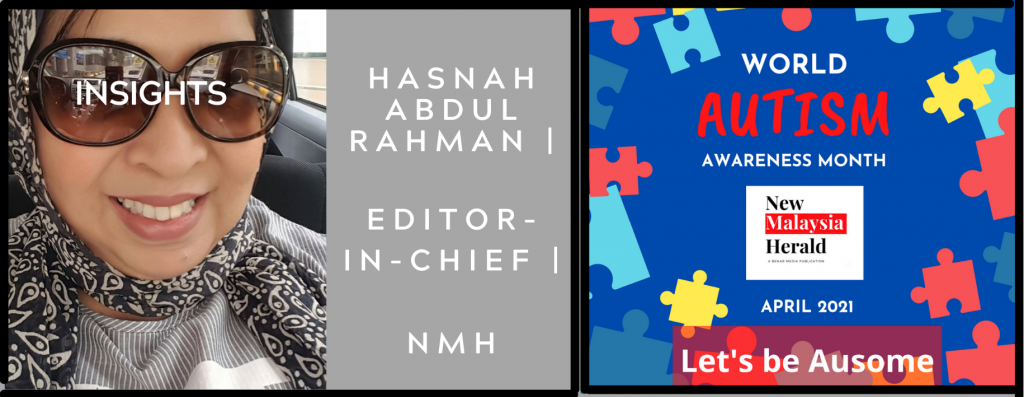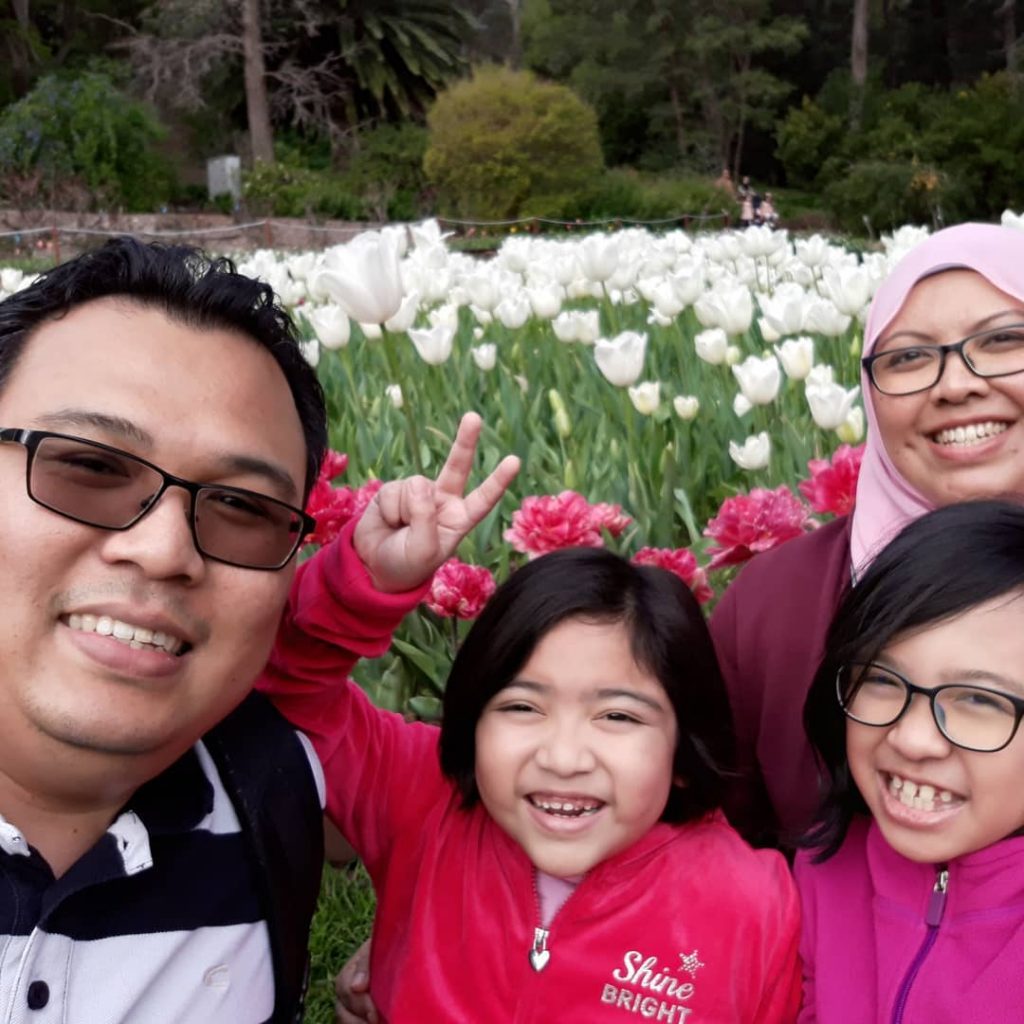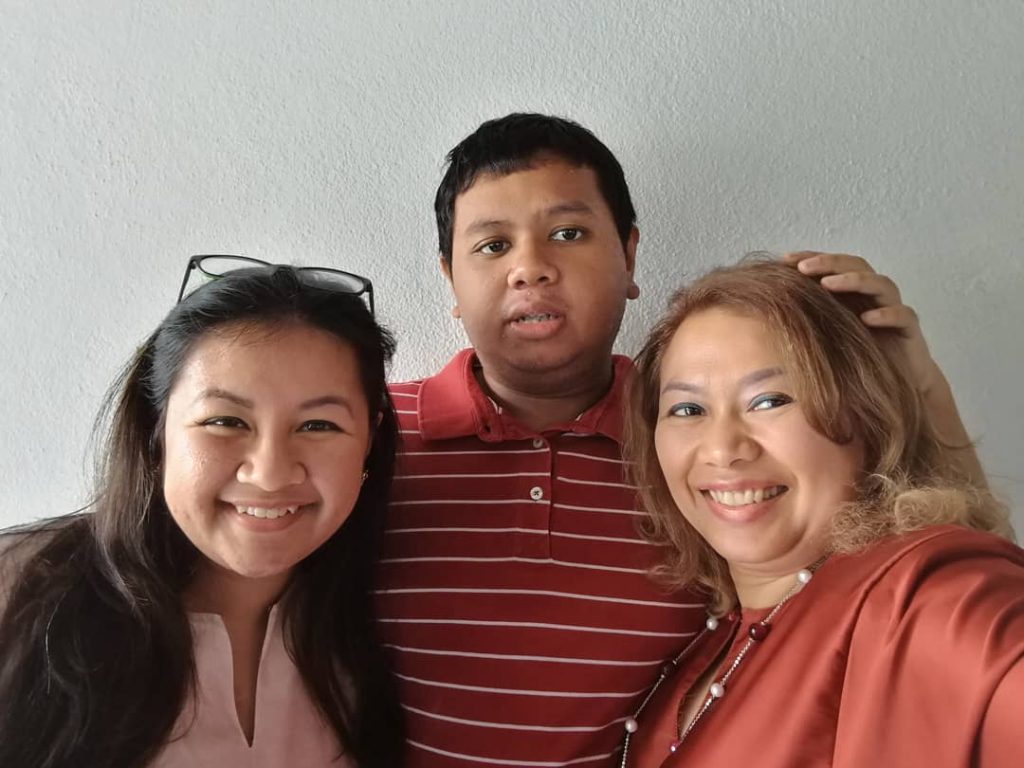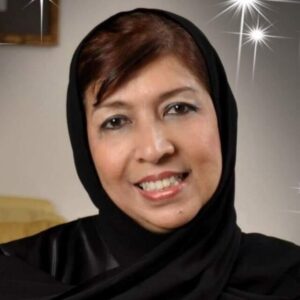
If ever the world needs to look for hardworking, kick-ass Members of Parliament to get the citizens to move it, move it, it should recruit autism parents. These are people who think out of the box when bringing up children; who do not only believe that they should look at Plan B after Plan A does not quite cut it, but they will try looking at Plans-24-other-alphabets; and they can stare so hard at members of the crowd who look at their autism kid having a meltdown, that the busybodies will just look away feeling terrible about themselves. Won’t they be awesome during Parliament sittings?
Just read the stories from some of these ausome (autism + awesome) parents who never gave up. They try their best to see what works for their differently-abled kids. Like all parents, they have built all kinds of plans for their children’s future. But the moment one of their offsprings is diagnosed as a special child, they then realise that the Future Starts Now!
Parents are the best advocators when it comes to creating awareness and empathy for their children with special needs. This is because most of them are not hesitant to fight for their child’s rights, willing to share whatever help they can to the other autism parents and correct society’s misconceptions about Autism and the Spectrum.
I know, standing up for your child with autism isn’t easy, but every parent can learn the skills to become a powerful advocate and help improve the system for people with autism spectrum disorders (ASD).
Most parents advocate for their children without even realising it. They seek out medical help when their child is sick, stand up for their child when he or she is treated unfairly, and ensure that the child lives and plays in a safe environment. Yet, for many parents, advocating for their child in a special education context seems far from second nature.
We speak to four parents who are blessed with having these colourful children, yet are ever so willing to share their journey – the highs and lows – so that many others out there will have the courage to consider their path as an adventure too and reach out to support groups, friends and family, if needed. A couple of these parents have already participated in advocacy groups and we have all read and seen their work for autism awareness and acceptance. Others are new and are still finding their way towards embracing this role as an autism parent.
The first of these ausome parents is Nik Nadia Nik Mohd Yusoff, fondly referred to as Nik Didi in her FB profile.

“Our eldest daughter, Aufiya, was born in April. She had her diagnosis in April, when she was about to turn three. A painfully funny co-incidence to think about it. Aufiya, autistic, born and diagnosed in April, the month of Autism Awareness.
“The night after we received her diagnosis, I felt really sad. It was like I just lost my dream child. Yup, like the death of a child that you had imagined would be your pride and joy. I kept wondering if there was anything that I did that made her autistic. Was it my fault?” she asked, a normal enough reaction when you first find out that you have a child under the spectrum.
Although the grieving phase was not long, but the feeling still comes back every now and then, especially when challenges crop up.
At the age of three, Aufiya had to attend therapies for three times a week. Her schedule got busier as she turned four because she went to kindergarten too.
“I was like a headless chicken, having to take her from one place to another. My dream of being a soccer mom, to drive my children around for their school and activities definitely came true earlier than I thought.
“Two years later, another bomb was dropped on us. Our younger daughter, Emilea was diagnosed with autism, as well. This time I didn’t cry anymore but went straight to get intervention for Emilea. Until now, it has been nine years and the girls still attended therapies. Only twice a month. No more hectic schedule like before,” said the more confident Nik.
In five years, as Aufiya will be 17, and Emilea 15 then, she hopes that both of them will acquire more confidence and have a better understanding of how the world works. They may be a few years behind their peers at the moment, but she believes with all of heart that they will reach the maturity needed to survive this world when they are older.
“As I work hard to prepare my children for the world, I hope the world will be ready for my children, when the time comes,” said Nik, who, together with her husband, Saiful Zaid Abdul Halim, embarks on intervention programmes which include Occupational Therapy, Speech Therapy, Social Skills Class and Psychotherapy.
For Azrul Labu Hassan, however, or more commonly known as Jeg Hui, he was in Jeddah when he received the report from the therapist that his son Hassan was borderline, mild autistic.

“We had already decided to come back to Malaysia for good, despite the COVID-19 situation, and the report was used to inform the CEO that I had to resign and go back to Malaysia,” said this actuarist who has spent a good number of years working in Saudi Arabia.
“Hassan had his ears tested in Jeddah and in SJMC to ensure he doesn’t actually have hearing problems. We moved to Shah Alam to allow him to be enrolled into the Early Intervention Programme, although he was already five turning six in 2020.
“Not much progress could be seen after eight months of EIP so after getting second and third opinions from qualified doctors, we pulled Hassan out from the EIP to do one-on-one Speech Therapy in November of the same year.
“That’s when we saw better results. We continued the ST in another place nearby and we also acquired better results from Hassan. He can read, spell, speak better and write. We also sent him to PASTI for most parts of 2020 where he could actually recite verses from the Qur’an, an achievement we would have never expected. In 2021, Hassan attends the normal sekolah rendah and we are happy PDPR is a thing of the past.
For Azrul and his wife, Nor Hafizah binti Abd Manaf (fondly known as Abbiey Hafizadic in her FB), their biggest fear was that Hassan would not be able to catch up with others and excel in school. While he has not reached the same level as others, the parents are quite optimistic that he could only get better.
“We were also worried Hassan would never be able to have a career and manage his own life when we are no longer around,” said Azrul, echoing the fears of all parents with Special Needs Children.
After five years, Hassan, eldest of three siblings, should be able to be enrolled in a good secondary school and it would be a dream come true if he were to join his father’s Alma mater, Kolej Yayasan Saad.
For Erin Chan Sheat Miau, her son Ethan was diagnosed at the age of 2.8 years old.

“All I saw was black & darkness. Why me? What am I going to do? When the ‘diagnostic blues’ (if there’s such word) was over, and slowly the acceptance, that’s when I started to read and understand what autism is about and ways of how to help my boy,” said Erin who shares the roles with husband Calvin Liaw.
Ethan was with NASOM from before he was three until he reached eight years. Thereafter, Erin homeschooled him. He also underwent speech therapy, attended Musikgarten, music therapy, conventional music classes – piano, violin & drum, drama classes, swimming classes, aikido classes, art & craft classes. He’s still attending some of the classes. Ethan also participated in the activities organised by The Inclusive Outdoor Classroom for many years.
Like Nik Didi, Azrul and all the autism parents in the world, questions like these were playing on Erin’s mind:
- Will he be able to live independently by himself when I’m gone or no longer able to care for him?
- Will he be a burden to his sister Chloe and to society?
- Will he be able to lead a ‘normal’ and meaningful life?
Questions that exist till today but answers are seldom found.
And like all other autism parents, Erin’s wishlist is for Ethan, who is now 17 years old, is for him to be more independent, able to care for himself, and to take his gift in music to another level – maybe compose songs!
Note from the writer: I have seen Ethan performing many times and I see him as a savant as his nimble fingers touch the piano keys and magic comes alive.
Feilina Feisol is no stranger to the Autism community, having helmed the National Autism Society of Malaysia (NASOM) for a good number of years until recently.

Here she speaks as an autism mum when she shared about the first time Naim was diagnosed to be on the spectrum.
“At that time, I honestly didn’t know what Autism was all about. This was in the year 2000. All I thought about was to fix it, get a solution and luckily my immediate family, parents and siblings, had my back and supported me from the word go,” said Feilina, who has another child, Nasha Raina, who has been a godsend in helping to care for Naim now that she is back from studying overseas.
“Naim had ABA, OT, speech therapy, behavioral therapy, music therapy, and everything that was trending.
“After all these years and all the therapies, I truly worry about 24-year old Naim not being able to be fully independent and worry what would happen to him if I’m gone.”
Her wishlist for Naim and all other autism off-springs is to have an independent living centre, community farm living, respite care, which caters for persons with autism and other neuro development disorders.. A place that Naim and his friends could sharpen their skills in whatever vocational skills, even farming etc, a place they can live in, work at and eventually grow old in.
Feilina has been blessed by having respite care, monetary, physical and emotional support from her family, mostly. Such a fitting gift for Feilina who celebrates her birthday today as we publish this article. – New Malaysia Herald
About the author: Hasnah Abdul Rahman is the editor-in-chief of the New Malaysia Herald while being an activist for autism. She has worked for various media organisations as reporter and editor and specialises in strategic communications. She is also a foodpreneur in her spare time and gives traditional cuisine that 5-star edge from her home kitchen.
Datin Hasnah is the co-founder and CEO of New Malaysia Herald based in Kuala Lumpur, Malaysia.
With an extensive background in mass communication and journalism, she works on building up New Malaysia Herald and it’s partner sites. A tireless and passionate evangalist, she champions autism studies and support groups.
Datin Hasnah is also the Editor in Chief of New Malaysia Herald.


Facebook Comments